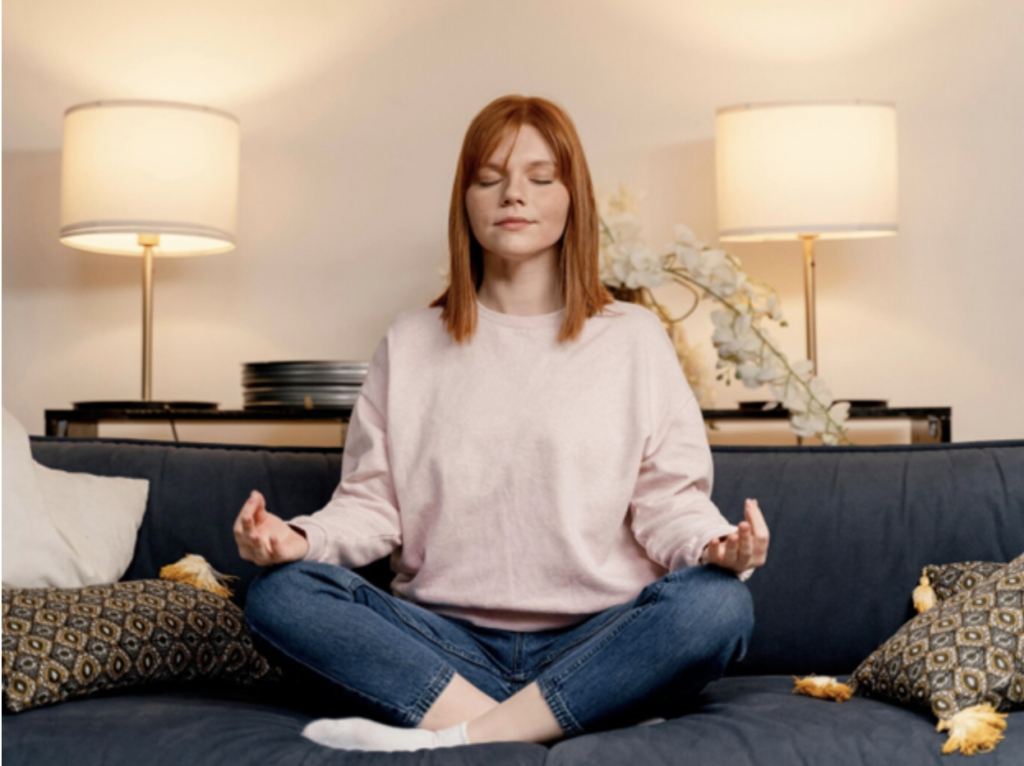If you’ve ever had anxiety, you might feel like you’re living on borrowed time. Left unchecked, anxiety can quickly create a cloudy, discomforting sense of unease. The good news is that reducing your anxiety can often improve your health and well-being, and help you regain control of your life. In the following article shared below by the Foundation for Family and Community Healing, we’ve come up with a bunch of practical strategies that can help you feel less anxious.
Prioritize Restful Sleep
Your goal should be to get seven to nine hours of quality sleep every night. This is important for both physical health and mental clarity. Sleep literally rests your brain, helping you to process the events of the day and to alleviate stress. When you skip out on sleep, your body has difficulty managing your stress hormones, thereby increasing anxiety. Your brain needs this downtime; therefore, your sleep environment should be dark, quiet, and cool. Keeping a regular sleep schedule will keep your circadian clock on track, improving the quality of your sleep.
Monitor Your Intake of Stimulants
Reducing caffeine and alcohol intake also helps to ease anxiety levels as they both stimulate your nervous system and alter your mood, leading to symptoms such as heart palpitations, restlessness, and sleep disturbances. Replace caffeinated drinks, such as coffee, with herbal teas and drink alcohol in moderation, or not at all, if this triggers your anxiety.
Structure Your Day
It’s important to create a daily schedule. Structure can reduce anxiety by increasing predictability, which lessens the uncertainty that fuels anxiety. For example, plan regular times for meals, work, and relaxation. That predictability will help ease your mind; after all, if you know what’s coming, there’s less room for anxiety to creep in.
Stay Active
Exercise can be one of the best antidotes to anxiety. Endorphins, chemicals in the brain that act as natural painkillers and mood elevators, are released with physical activity. A brisk walk or short yoga session can help clear your head and alleviate immediate anxiety. Get at least 30 minutes of moderate exercise most days of the week. Regular physical activity can also help you sleep better. Better sleep in turn can reduce anxiety.
Practice Deep Breathing
Deep breathing triggers the vagus nerve, which automatically calms your nervous system. Take deep breaths in through your nose, and release the air through pursed lips. You can even use a rhythmic pattern, such as the 4-7-8 method, in which you breathe in for four seconds, hold your breath for seven seconds, then exhale for eight. This breathing pattern slows your heart rate and helps to calm you down, bringing you immediate relief when anxiety starts to rise.
Break Down Tasks
When faced with a challenging to-do list, breaking down tasks into smaller, more manageable steps can help you avoid feeling overwhelmed. Concentrate on one small task at a time rather than the large project that these tasks form part of. Limiting the mental load and stress that goes hand in hand with trying to do everything at once will facilitate the actualization of these tasks. Engaging in small celebrations as you accomplish your tasks will not stay positive.
Limit Screen Time
Allowing yourself a regular interval of time away from your screens, especially in the evening before bed, is another important step in supporting your mental well-being. If you fill your brain with screens for too long before bedtime, it can be difficult to switch off. You’ll be overstimulated, and your brain will struggle to calm down. If you make it a habit of turning off your screens earlier in the evening, you’ll find that you get to sleep easier, anxiety over sleep can be diminished, and you’ll wake in the morning feeling better rested. In fact, when was the last time you picked up a book for an hour a day, or a relaxing hobby of your choice, before bed?
Alternative Modalities for Anxiety Relief
- Ashwagandha: The go-to ancient herb for stress reduction. Ashwagandha has been shown to help regulate cortisol levels, which should help you better cope with stress.
- THCa: THCa is available in both wholesale and retail options. THCa is a non-psychoactive cannabis compound that has shown promise in modulating stress and anxiety without the psychoactivity associated with THC.
- Acupuncture: Tiny needles are inserted at particular points in the body to rebalance you, and thereby calm your mind.
- Aromatherapy: Essential oils of lavender, chamomile, or sandalwood calm the nervous system and ease anxiety.
With these strategies outlined above, you can actively take charge of your anxiety and feel better. Be it a lifestyle change, a form of therapy, or alternative medicine, it’s all about finding what works for you in order to bring peace into your life.
The Foundation For Family & Community Healing offers a wealth of support and resources to help individuals foster healthy lifestyles and relationships. Get in touch today to learn more.
